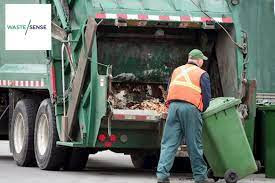How Waste Management Services Reduce Environmental Impact?
Waste management is critical to reducing waste production's environmental impact. Managing waste efficiently is crucial for sustaining the environment in cities like Melbourne, where population density and consumption rates are high. The best waste management Melbourne services help ensure that waste is handled responsibly, emphasising reducing, reusing, and recycling materials.
This not only helps in minimising pollution but also contributes significantly to conserving natural resources. Explore how these services contribute to a greener, more sustainable future.
1. Reducing Landfill Dependency
Landfills are a significant source of environmental harm. They consume large areas of land, generate greenhouse gases like methane, and can pollute surrounding ecosystems. Waste management services play a crucial role in diverting waste from landfills.
These services reduce the volume of waste in landfills by employing recycling, composting, and waste-to-energy technologies.
Through efficient waste segregation and processing, organic waste, plastics, and metals are either recycled or converted into energy, significantly reducing landfill usage. This minimises the environmental footprint of waste disposal and curbs methane emissions, which are harmful to the atmosphere.
2. Enhancing Recycling and Reuse
Recycling is a cornerstone of modern waste management, and waste management in Melbourne services are focused on ensuring that as much waste as possible is recycled. From paper and plastics to metals and textiles, these services sort and process recyclable materials to prevent them from being discarded in landfills.
Recycling reduces the need for raw material extraction, conserves natural resources, and reduces energy consumption. Moreover, promoting product reuse—such as repairing electronics or donating furniture—further lessens the strain on waste disposal systems.
By focusing on recycling and reuse, waste management services reduce the demand for new materials and the energy required to process them.
3. Responsible Management of Hazardous Waste
Certain types of waste, such as chemicals, batteries, and electronic waste, pose significant environmental risks if improperly disposed of. The best waste management Melbourne services specialises in the safe and responsible handling of hazardous waste, ensuring that it is processed according to environmental regulations.
Improper disposal of hazardous waste can lead to soil and water contamination, affecting wildlife and human health. By adhering to strict guidelines for hazardous waste management, these services reduce the risk of environmental pollution, safeguarding natural resources for future generations.
4. Public Education and Sustainable Practices
Raising awareness about waste management is essential for encouraging responsible consumption and disposal practices. Waste management services play an active role in educating the public on reducing waste, properly sorting recyclables, and avoiding contamination in the recycling stream.
Through educational campaigns and community engagement, residents and businesses are informed about best practices for waste disposal.
Waste management services help reduce the overall environmental impact of waste generation by empowering individuals with the knowledge and tools to make environmentally conscious decisions.
5. Supporting the Circular Economy
The concept of a circular economy is gaining momentum as a sustainable alternative to the traditional linear economy, which follows a "take, make, dispose" model. In a circular economy, products and materials are reused, refurbished, and recycled to extend their lifecycle. Waste management services are integral to this model, as they facilitate the recycling and repurposing materials to reduce waste and conserve resources.
These services support the circular economy by reducing the need for new raw materials and minimising the environmental impact of production processes. This approach contributes to more sustainable manufacturing, waste reduction, and energy savings.
6. Reducing Carbon Footprint through Efficient Operations
Waste management services also reduce the carbon footprint of waste collection and disposal. They have made significant strides in improving the efficiency of their operations. By optimising waste collection routes, using fuel-efficient vehicles, and implementing green technologies, they minimise the environmental impact of their operations.
In addition to reducing emissions from waste management vehicles, these services also focus on implementing energy-saving practices across their facilities. This reduction in operational carbon emissions contributes to the broader goal of combating climate change.
Conclusion: A Key Player in Environmental Sustainability
Effective waste management is essential for minimising environmental impact and conserving natural resources. The best waste management services help achieve these goals by reducing landfill use, promoting recycling and reuse, managing hazardous waste responsibly, educating the public, and supporting the circular economy.
These efforts are vital for building a more sustainable and environmentally conscious society. By working with waste management services, we can all contribute to reducing our ecological footprint and preserving the environment for future generations.
.jpg)

.jpg)
Comments
Post a Comment